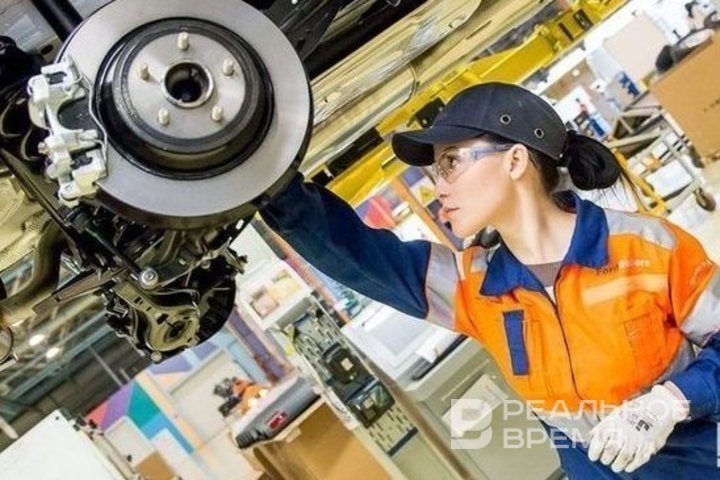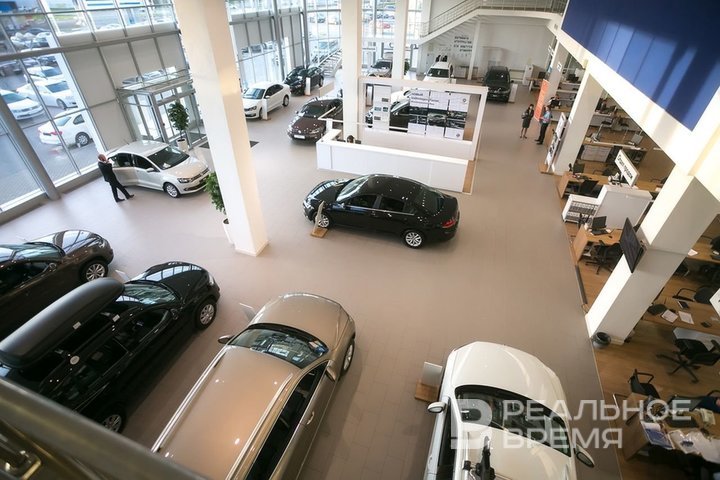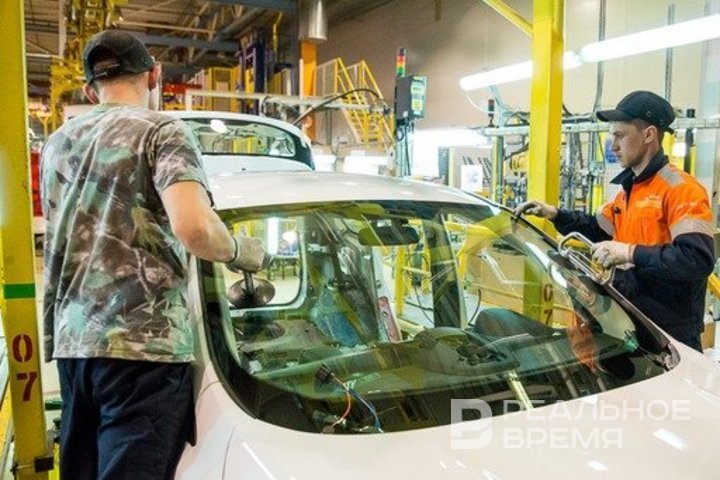Auto parts to become more expensive in Russia due to disruption of supplies from China
US sanctions against China for trade with Russia may lead to new disruptions in logistics

The cost of components in the Russian car market has increased by 7-12% this year, according to data from specialised associations. However, in 2025, auto parts may become much more expensive, since China, the main supplier, has been sanctioned by the United States for trade with our country. In December, Beijing is to adopt new rules for export control of goods, and if it refuses to supply to the Russian Federation, this will lead to a negative scenario for the industry, the Union of Car Service Stations of Russia warns.
“As the yuan fluctuates — so our prices for spare parts jump”
Car repair and maintenance in Russia increased in price by 31% in the first 9 months of the year. The average check has grown to 10,000 rubles, according to Fit Service. According to the company, there was a significant increase in annual inflation and an increase in the cost of a standard hour by 16%.
At the same time, the average cost of spare parts for minor repairs did not increase so significantly over the year — by 5-7%. The price increase was affected by increased supply costs due to difficulties with cross-border payments.


Ilya Plisov, a member of the Board of the Union of Car Services of Russia, deputy director general of EuroAuto, estimates the rise in the price of spare parts in about the same range of 5-10%. According to him, this year there was a slight increase in production, not significant:
“There was a noticeable price jump in 2022, then it was more or less levelled. Well, again, this is the average, because if we take spare parts for maintenance, everything is fine. As for the original spare parts, there is a group of products that cannot be replaced with analogues, everything is difficult, long and expensive with them. Nothing is changing here, and we are in a difficult situation with the supply of this kind of spare parts.”

“Everyone is afraid of secondary sanctions, they work through agency schemes”
The rise in prices is affected by the problem with cross-border settlements. Paying for the services of foreign partners for the supply of spare parts, we have to resort to various ways to circumvent Western sanctions.

Alexander Kazachenko also speaks about the small margin in the cost of goods due to various agency schemes in calculations that suppliers have to resort to: “Yes, they take a commission, of course. But you know, we came up with this ourselves and shadow schemes to make everything happen like this spawn.” A more significant problem was the lengthening of delivery times, he noted:
“If we compare, 3 years ago, express delivery took 2-3 days, but now it is 7-12 days. Another standard situation is when new, restyled cars appear. China accounts for 60% of sales, it is going to be 80% soon, and for the first six months there are practically no spare parts for them — everything is made to order and for a very long time. Then things get better, suppliers look at sales analytics, invest in spare parts for new models, and the situation evens out.

“If China refuses to bring spare parts, the market will be very sad”
However, in the future, the situation in the car service industry may worsen if there are problems with the supply of spare parts from China, Ilya Plisov warned. These days, the United States has imposed sanctions on almost 400 individuals and companies from China, India and Turkey for trade with Russia. Earlier, similar restrictions were imposed on Cuba, Iran and other countries. “Turkey is starting to maintain sanctions lists for goods, which can also affect the market. China is slowly going to issue an order by December to support the sanctions lists for spare parts. How this will play out will be clear by the end of the year or the beginning of next year," the expert said.
“There may be a very simple negative scenario here. If they start refusing to bring brakes or tires from China, conditionally, then the market will be very sad. Today, Southeast Asia is an active market, it supplies spare parts for literally everyone, including an intermediate logistics hub, even something from Europe is coming to us through China," Plisov said.
In his opinion, in case of disruption of supplies from China, this may lead to another increase in prices for car parts, since logistics chains will have to be changed again: “I don't know what it will go through, but it will, spare parts will find a loophole. Yes, it will be more expensive, because everyone has to somehow invent these new ways, open new companies, and pay for all this. And, of course, everything will be included in the product price.” How much the products will rise in price will depend on the scale of Beijing's restrictions on the supply of automotive components to Russia.

“The aspirations of the people and business opportunities have coincided”
However, there is a positive side to the problem, as noted in the Union of Car Services. “If 20 years ago, we were under the 'European yoke': spare parts even from third countries travelled to us through Europe, today about a hundred Russian companies have learned to supply directly, bypassing the EU. This has saved money for our consumers by 30-40%," said Plisov. Since previously such supply chains were longer, logistics margins and profit margins remained, including for European businesses. “Now we are avoiding this: both customers themselves and businesses. This is a significant saving in the cost of transshipment and earnings of European companies.”
As a result, according to the expert, all market participants are actively moving into the economy segment for spare parts that are in high demand. These are filters, pads, discs, suspension parts and more. “Original spare parts are not replaced: airbags, control units, rare headlights, large body parts, no one makes them, so prices for them do not decrease," he explained.
The industry notes that Russians themselves have started saving on spare parts for cars. If previously they preferred parts from the “middle”, “original” and “premium” categories, now the share of sales of budget items has increased dramatically. Analysts came to this conclusion, noting that already about 10% of customers choose exclusively inexpensive spare parts for repair.
“In fact, the trend towards saving has been going on for the last five years, and, of course, has noticeably increased after 2022. More and more people are choosing budget spare parts," Ilya Plisov confirmed. “There are quite a lot of economy segment parts that are quite acceptable for operation. If 20 years ago it was more expensive to buy cheap spare parts, now European and American companies have taught the Chinese, Turks and third world countries to make spare parts.

According to him, the industry now strictly adheres to quality standards, there are many original productions on the market. Automakers locate production facilities in other countries and often “these same engineers create factories literally across the street”. Therefore, in conditions of high competition, even inexpensive car parts are distinguished by good quality.
“Until 2022, it was impossible to find an unoriginal spare part or an analogue at an official dealer, but now it is very common. They even introduce their own trademarks. The aspirations of the people and business opportunities have coincided. Yes, people can save money by getting this opportunity, because there are a lot of cheap goods," Plisov believes.
There is a shortage of personnel in the industry to service electric cars
Along with the growth in sales of Chinese cars in Russia, there have been reports of massive breakdowns. In particular, Kommersant, with reference to market participants, announced the detection of malfunctions in 70% of Chinese-made cars in one of the taxi companies. The National Agency for Industrial Information has estimated that the cost of servicing a Chinese crossover in 5 years may exceed the cost of a new car. However, not all experts agree with this assessment.
“No, it's a complete lie. I maintain a taxi company. I have two-year-old Chinese cars with a mileage of 300,000. Everything is standard, just like in Korean and German cars. If you carry out scheduled maintenance and look after the car, no emergency things will happen, and if you squeeze everything out of the car, pour cheap engine oil for 500 rubles into it, any car can be ruined," Alexander Kazachenko believes.

“China has extensive manufacturing experience in cars, 20 million are manufactured and sold per year. This is a huge country in terms of motorisation and they would not be able to live with a constantly breaking product. As for breakdowns in Chinese cars, these are more fairy tales. Like everyone else, there are car models that have some flaws, unsuccessful solutions, just like the Swedish and French ones," Ilya Plisov added.
A more serious problem for the industry is the maintenance of electric vehicles, Kazachenko noted. Especially given the increased demand for electric cars and hybrids. “Here we have a very huge drawdown both in specialists and in equipment. In principle, there are no problems with spare parts — everything, including batteries, can be brought from China and replaced. But there are almost no normal services, there are probably three or four centres in Moscow that can serve trains, one service in Kazan, and one in Yekaterinburg. Cars multiply, but there are simply not enough personnel. We are also faced with this — training at Geely at a factory for working with electric machines in China costs $25,000 per person," the speaker gave an example.